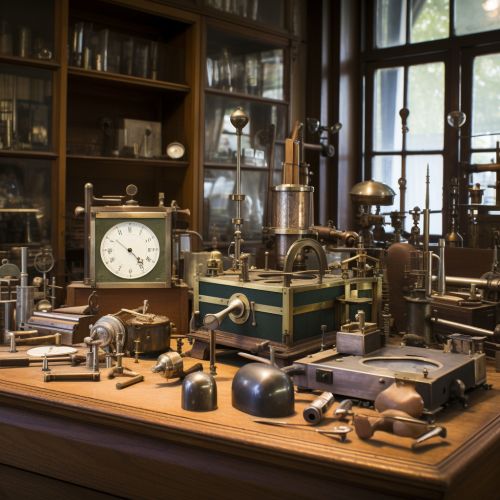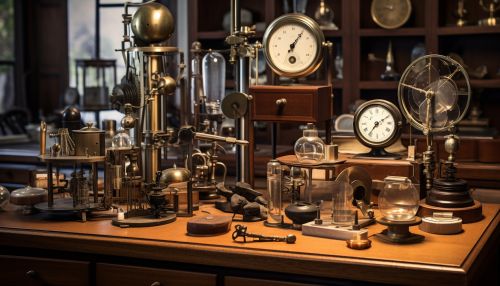Instrumentation
Introduction
Instrumentation is a collective term for measuring instruments that are used for indicating, measuring and recording physical quantities. The term has its origins in the art and science of scientific instrument-making. Instrumentation can refer to devices as simple as direct-reading thermometers, or as complex as multi-sensor components of industrial control systems. Today, instruments can be found in laboratories, refineries, factories and vehicles, as well as in everyday household use (e.g., smoke detectors and thermostats).
History
The history of instrumentation can be divided into several phases. The first phase started in the ancient times with maintaining the calendar and the development of simple instruments for navigation. The second phase started in the 14th century with the development of precise mechanical devices, and the third phase started in the 18th century with the development of the industrial revolution which demanded accurate instruments for process control.
Types of Instruments
There are several types of instruments used for measuring various parameters. These include:
- Pressure measuring instruments: These instruments measure pressure, typically of gases or liquids. Pressure is an expression of the force required to stop a fluid from expanding, and is usually stated in terms of force per unit area.
- Temperature measuring instruments: These instruments measure temperature or temperature gradient using a variety of different principles. The most common type of temperature measuring instrument is the thermometer.
- Flow measuring instruments: These instruments measure the flow rate or quantity of a gas or liquid moving in a pipe.
- Level measuring instruments: These instruments measure the level of a liquid or bulk-solid material (such as grains) within a specified space.
- Analytical instruments: These instruments measure physical quantities such as pH, humidity, light intensity, radiation, and so on.
Instrumentation Engineering
Instrumentation engineering is the science of the measurement and control of process variables within a production or manufacturing area. The process variables used in industries are Level, Pressure, Temperature, Humidity, Flow, pH, Force, Speed etc. Control engineering or control systems engineering is the engineering discipline that applies control theory to design systems with desired behaviors. Control engineers are responsible for the research, design, and development of control devices and systems, typically in manufacturing facilities and process plants.
Instrumentation in Medicine
Instrumentation also has major applications in the field of medicine. Medical instrumentation is used to monitor patient health, assist with procedures, and perform diagnoses. Examples of medical instruments include electrocardiograms (ECGs), medical thermometers, and blood pressure monitors.
See Also


